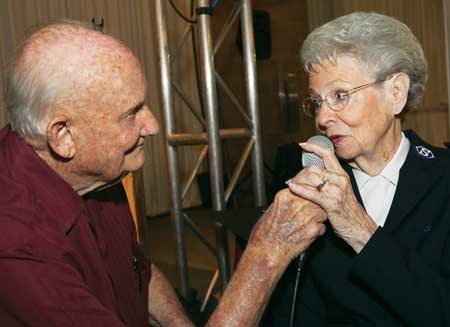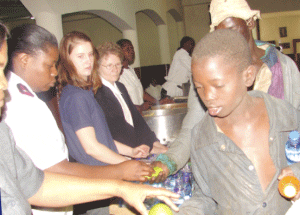By Robert Docter, Editor-In-Chief
Today—summer arrives with its golden dawns that light an azure sky and brilliant sunsets where a gilded globe melts into a deep blue sea. This radiant star on which we ride, this magnificent home where we reside has finally achieved its maximum tilt of 23.4 degrees in relation to the sun.
The days grow longer and today, the summer solstice, gives us our maximum light and the longest day of the year.
Sirius, the dog star, shines more brightly than any other star in the heavens except for the sun. At this time of the year it rises and sets in conjunction with the sun and ushers in what we call “the dog days of summer”—40 days between July 3 and August 11 this year.
Unless you’re on the staff of a summer camp, the dog days tend to produce an easy ennui in each of us. Focus turns elsewhere. Time crawls. Absent “hurry” has left for vacation. A single sunbeam searches out a pathway through the spreading shade and radiates the glory of the roses bursting their bounty on a nearby bush. The bees, undeterred in their tasks, dutifully fulfill their obligation to the garden, singing their own song of summer.
The long, lovely summer afternoons slowly meld into evening as the pleasant cordiality of a day resisting night spreads its hypnotic vapors and “genial friendship plays the pleasing game of interchanging praise.”
George Gershwin captured the essence of Dubose Heyward’s poem “Summertime” in the memorable opening aria of his opera, “Porgy and Bess.” The rhythm and melodic line introduce a feeling of summer’s luscious languor full of optimism and hope mixed with world-weariness.
Clara sings the lullaby to her baby.
Summertime
And the livin’ is easy
Fish are jumpin’
And the cotton is high
Your daddy’s rich
And your mamma’s good lookin’
So hush little baby
Don’t you cry.
The opera, first performed in 1935 and based on the 1926 book, “Porgy,” by Heyward, sings of romance and tragedy among the population of Catfish Row, a small fishing village near Charleston, South Carolina. Gershwin insisted that the entire cast be African American, and each succeeding presentation over the years has maintained that tradition.
For many Salvation Army youth, summer means “camp.” Because the Army wants to have strong standards to serve the youth in attendance, each Army camp is fully accredited by the American Camping Association. This requires close attention to matters of institutional management and camper care.
Summer romances seem to imply a tentative relationship, not lasting beyond the summer. Such is not the case with many Army marriages by members of Army camp staffs. It amazes me when I inquire where a couple first met how many of them met at camp. Often, those relationships that seem to work, in which a couple stays a couple throughout the summer, consummate with marriage.
That’s certainly true for me. Diane and I first met at Camp Elephant Rock in Colorado. (The Army no longer owns this camp.) She lived in Salt Lake City and I in Los Angeles. I discovered a gem and she discovered someone she could put up with—me. Colorado summers often light up the sky with bursts of lightning and sudden rain for short periods. Some of that lightning must have hit me. Sixty years and six children later, it’s still there.
Working at camp, however, provides much more than a summer romance, even if it turns into a wonderful marriage.
For the camp staff there is much to discover in areas of group leadership: discovery and insight into vast cultural differences, recreation as a meaningful skill, a group of songs you will never be able to forget, lessons in anger management and interpersonal communication. Some will learn much about personal hygiene, cooking, serving food and washing dishes. These jobs, some of which demand 24-hour days, produce maturity, personal discipline in the face of stress, tremendous growth and genuine exhaustion.
Each of the 10 divisions in the Western Territory owns and operates a summer camp program—both for Army youth seeking to master certain skills and general camp programs for children from low-income communities.
Here are the names and contact information of these camps.
DIVISION CAMP NAME PHONE
Alaska King’s Lake 907 357-2501
Cascade Kuratli 503 637-5089
Del Oro Del Oro 530 264-4701
Golden State Redwood Glen 831 461-2000
Hawaii/Pac. Is. Homelani 808 637-4131
Intermountain High Peak 970 586-3311
Northwest Arnold 253 847-2511
Gifford 509 233-2511
Lummi Island 360 758-2400
Sierra Del Mar Pine Summit 909 878-0140
So. Calif Crags 818 222-6327
Gilmore 818 222-6845
Southwest Ponderosa Ranch 928 535-5082
Spend the dog days of summer wrapped in the warmth of a friendly environment, nurtured by the joy of a loving Son, finding peace in the wealth of our relationships.













